Trump’s Vision for America: Sweeping Reforms and Controversial Policies
In the wake of the recent election, Donald Trump has unveiled an array of plans set to reshape the United States fundamentally. As part of his bid for a new term, Trump has outlined policies that promise to stir significant debate and controversy. His vision spans immigration reform, government restructuring, and a fierce stance against what he terms the “Deep State.” These policies, while applauded by his supporters, have drawn sharp criticism from various quarters. This article delves into the key aspects of Trump’s proposed agenda, examining the potential implications and the contentious debates they ignite.
Table of Contents
1. Introduction
Donald Trump, in his characteristic unyielding manner, has come forward with a series of ambitious and divisive plans as he seeks another term in office. His proposals aim to address issues ranging from immigration to governmental corruption. The plans, however, have not been without their detractors. This article aims to provide a comprehensive overview of these policies, their potential impact, and the broad spectrum of public opinion they evoke.
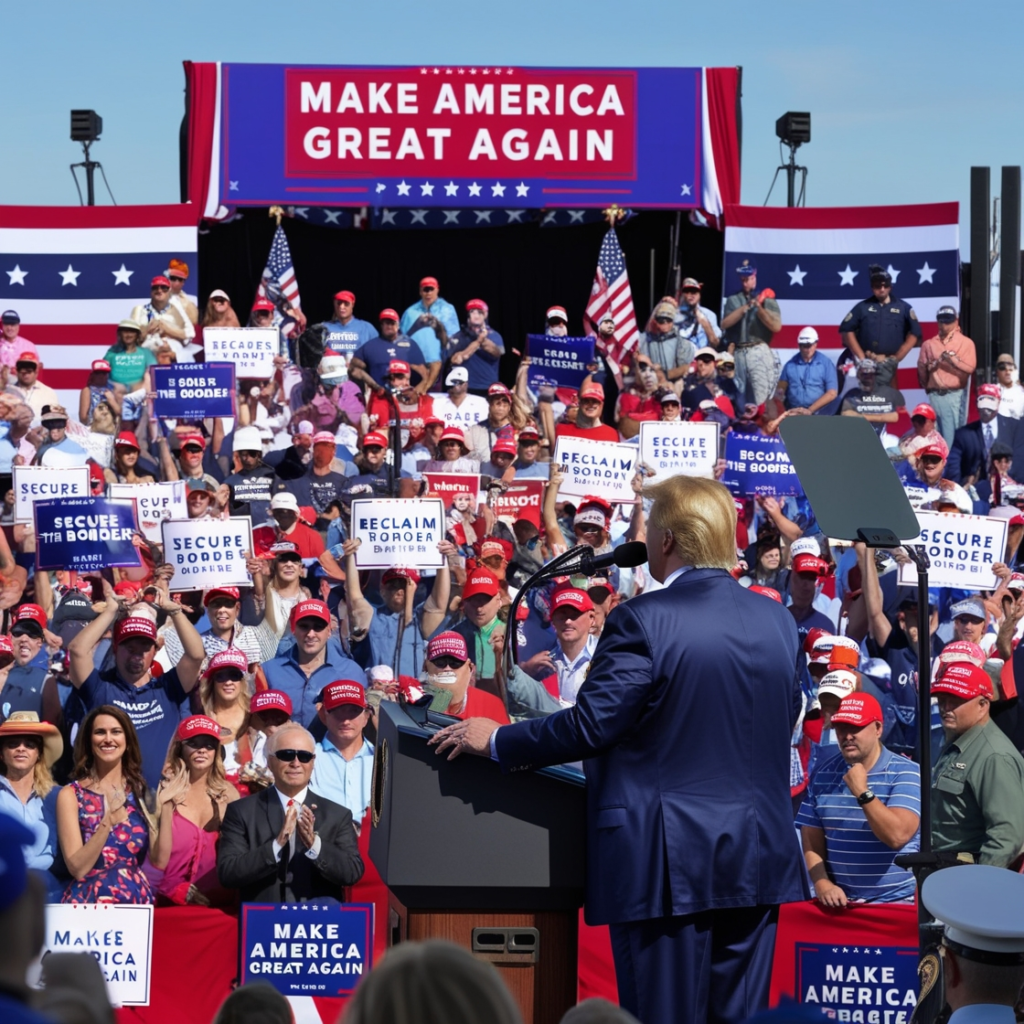
2. Immigration Reform: Ending Birthright Citizenship
A cornerstone of Trump’s immigration policy is the termination of birthright citizenship for children of illegal immigrants. This move, he argues, will curb the influx of undocumented migrants. “As part of my plan to secure the border on day one of my new term in office, I will sign an executive order making clear to federal agencies that under the correct interpretation of the law, the future children of illegal aliens will not receive automatic U.S. citizenship,” Trump stated. This policy aims to deter illegal immigration by removing one of its perceived incentives.
3. Cost and Logistics of Mass Deportations
Trump’s proposal to deport millions of illegal immigrants annually has sparked heated discussions about feasibility and morality. Estimates suggest that such a plan could cost $88 billion. Critics argue that this is an exorbitant expense for American taxpayers, but Trump supporters counter that national security justifies the cost. The logistics of deporting such a large number of people, including families, raises further questions about the practicality and humaneness of such actions.
4. Controversial Social Welfare Cuts
In New York City, a pilot program providing migrant families with debit cards to buy food has been discontinued, igniting further controversy. The program, which distributed culturally relevant food to migrant families, was intended to save taxpayers millions by reducing food waste. Mayor Adams’ recent decision to end the program has raised questions about the city’s commitment to humanitarian aid amid growing pressures on public resources.
5. Reclaiming Democracy: Dismantling the Deep State
Trump has pledged to dismantle what he describes as the Deep State, aiming to root out corruption within federal agencies. “Here’s my plan to dismantle the Deep State and reclaim our democracy from Washington corruption once and for all,” Trump declared. This initiative includes reissuing his 2020 executive order to remove rogue bureaucrats and aggressively using this power to purge the government of officials deemed corrupt or obstructive.
6. Protecting National Security and Intelligence
A key part of Trump’s plan is to overhaul national security and intelligence agencies. He intends to expel corrupt actors and ensure that bureaucrats cannot target and persecute political enemies. “The Departments and agencies that have been weaponized will be completely overhauled so that faceless bureaucrats will never again be able to target and persecute conservatives, Christians, or the left’s political enemies,” Trump asserted. This pledge reflects his broader aim to protect political allies and dismantle perceived biases within these institutions.
7. Transparency and Whistleblower Policies
While advocating for a crackdown on government leakers, Trump faces opposition from those who believe whistleblowers are essential for transparency. Critics argue that targeting leakers could stifle important disclosures that hold the government accountable. Trump’s stance reflects a tension between national security interests and the public’s right to know.
8. Reforming FISA Courts
Trump plans to reform the Foreign Intelligence Surveillance Act (FISA) courts, which he claims are rife with corruption. He argues that these courts have been complicit in approving flawed warrant applications. “We will totally reform FISA courts, which are so corrupt that the judges seemingly do not care when they are lied to in warrant applications,” Trump said. This reform aims to restore integrity and accountability within the judicial oversight of intelligence operations.
9. Decentralizing Federal Bureaucracy
One of Trump’s more radical proposals involves relocating significant portions of the federal bureaucracy outside Washington, D.C. This decentralization effort is intended to reduce the influence of the so-called Washington swamp. Trump cites his previous move of the Bureau of Land Management to Colorado as a precedent, suggesting that up to 100,000 federal positions could be relocated to areas populated by “patriots who love America.”
10. Combatting Government Corruption
To address revolving-door corruption, Trump proposes banning federal bureaucrats from taking jobs with companies they regulate. “I will work to ban federal bureaucrats from taking jobs at the companies they deal with and that they regulate,” Trump announced. This measure aims to prevent conflicts of interest and ensure that regulatory actions are taken in the public interest rather than for personal gain.
11. Implementing Congressional Term Limits
In a bid to refresh legislative governance, Trump advocates for a constitutional amendment imposing term limits on members of Congress. This proposal is aimed at reducing entrenched political power and promoting new leadership. “Finally, I will push a constitutional amendment to impose term limits on members of Congress,” Trump stated. This reform is intended to rejuvenate Congress and diminish the influence of career politicians.
12. Public Reactions and Expert Opinions
The public and expert opinions on Trump’s plans are deeply polarized. Supporters laud his boldness and commitment to radical change, believing these measures are necessary to restore American values and integrity. Critics, however, warn of the potential for increased divisiveness, legal challenges, and the undermining of democratic norms. The true impact of these policies will unfold in the years to come, shaping the nation’s political landscape.
13. Conclusion
Donald Trump’s vision for America is one of sweeping reforms and controversial policies. His agenda promises significant changes in immigration, government structure, and national security. While supporters view these proposals as essential for reclaiming America’s greatness, detractors see them as potentially dangerous and divisive. As Trump pushes forward with his plans, the nation watches closely, aware that the consequences of these policies will reverberate for years to come.
14. FAQ
Q: What is Trump’s stance on birthright citizenship? A: Trump plans to end birthright citizenship for children of illegal immigrants, aiming to curb illegal immigration by removing this incentive.
Q: How much would Trump’s mass deportation plan cost? A: Estimates suggest the plan could cost $88 billion annually, though the accuracy of this figure is debated.
Q: What is the Deep State, according to Trump? A: Trump describes the Deep State as entrenched bureaucratic corruption within federal agencies, which he plans to dismantle.
Q: How does Trump plan to reform the FISA courts? A: Trump intends to overhaul the FISA courts to prevent the approval of flawed warrant applications and restore judicial integrity.
Q: What is Trump’s proposal for decentralizing federal bureaucracy? A: Trump aims to relocate significant portions of the federal bureaucracy outside Washington, D.C., to reduce the influence of the so-called Washington swamp.
Q: How does Trump plan to combat government corruption? A: Trump proposes banning federal bureaucrats from taking jobs with companies they regulate to prevent conflicts of interest.
Q: What are Trump’s views on whistleblowers? A: Trump plans a crackdown on government leakers, though critics argue this could stifle important disclosures that ensure government accountability.
Q: Will Trump impose term limits on Congress? A: Trump advocates for a constitutional amendment to impose term limits on members of Congress, aiming to reduce entrenched political power.



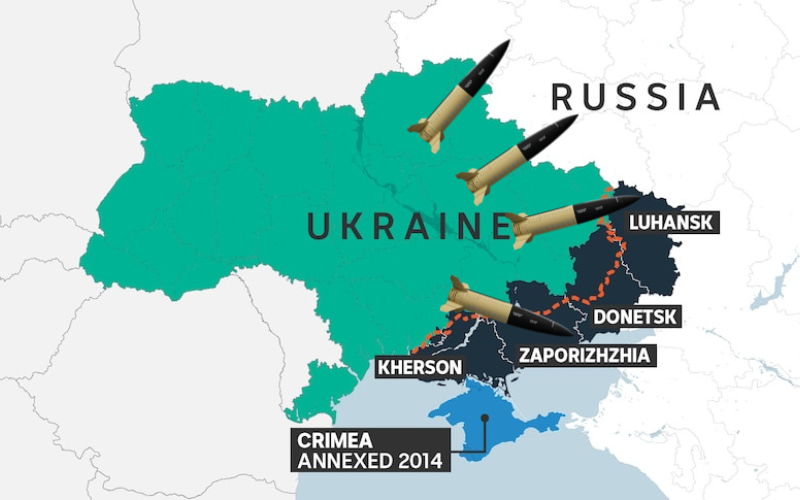
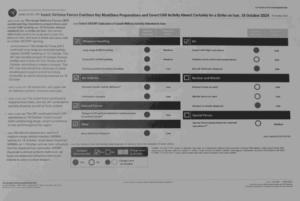





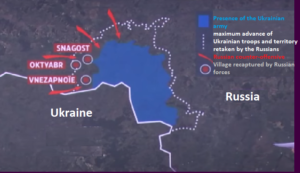

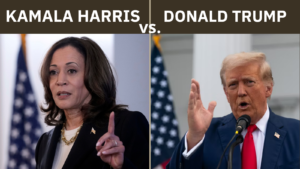

2 comments